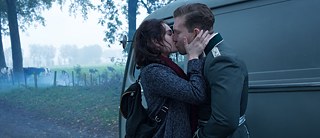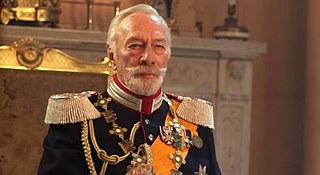British Film Festival 2017
The Exception: Painting history in shades of grey

52 years ago, the Austrian hills were alive for Christopher Plummer. Now, a Dutch village is as well. Gone is the sound of music on the cusp of war, replaced by the possibility of doing what’s right after the combat has begun.
In The Exception, Plummer steps into the shoes of Kaiser Wilhelm II, who has been living in exile in the Netherlands for two decades when the film takes place. It’s 1940, World War II is well underway and the Nazis have freshly invaded the Netherlands on their planned path through Europe, but they’re concerned about local spies targeting the house of the German emperor. Playing Wilhelm as cantankerous but kindly, unhappy about the present while yearning for the past, and outspoken — behind closed doors — in his criticism of Hitler, it seems there’d be little of significance for enemies to eavesdrop upon. Indeed, when Captain Stefan Brandt (Jai Courtney) is dispatched to become the head of the deposed ruler’s protective detail, he’s there to serve and guard as much as to ensure the old man keeps in line.

A tale of high-stakes romance
Helmed by British theatre director turned first-time filmmaker David Leveaux, and adapted from Alan Judd’s novel The Kaiser's Last Kiss by seasoned TV screenwriter Simon Burke (Strike Back, Fortitude), The Exception turns history into a tale of high-stakes romance, as staged in handsome period style with lashings of both tension and humour. Accordingly, it’s a film of seemingly ill-fitting parts, as its threads of wartime duplicity and striving for decency don’t always piece together perfectly with its love story. Still, when the feature’s various aspects do shine — the individual performances, and the thoughtful way that each of the three main characters are forced to confront their place in the conflict, for example — it remains involving.
